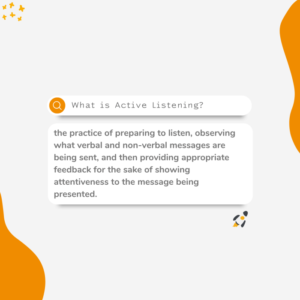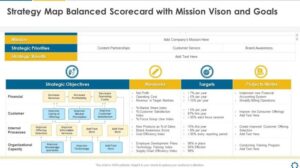
Networking for freelancers plays a pivotal role in shaping a successful career. In today’s gig economy, where opportunities often arise from connections rather than conventional job applications, understanding the nuances of networking is essential. This guide will delve into the importance of networking, effective strategies, and the various platforms available for freelancers to expand their reach and enhance their visibility.
From building a professional online presence to attending key industry events, freelancers can leverage these strategies to forge valuable relationships that lead to new projects and collaborations. By honing their networking skills, freelancers can not only increase their chances of success but also build a supportive community around their work.
Importance of Networking for Freelancers
Networking is a critical aspect of building a successful freelance career. It opens doors to new opportunities, fosters collaborations, and enables freelancers to establish a strong professional presence. By connecting with other professionals in the industry, freelancers can gain insights, share resources, and enhance their visibility in a competitive market.Networking can lead to new projects and partnerships that may not be accessible through traditional job hunting methods.
It also allows freelancers to tap into a community where knowledge and support are shared freely, making it easier to navigate the challenges of freelancing. Building a robust network can significantly impact a freelancer’s growth and sustainability in their chosen field.
Strategies for Effective Networking in the Freelance Community
To maximize the benefits of networking, freelancers should adopt several effective strategies:
- Attend local meetups and industry events to connect face-to-face with potential clients and collaborators.
- Participate in online forums and social media groups related to your niche to engage with other professionals.
- Utilize platforms like LinkedIn to showcase your work and connect with industry leaders.
- Offer value in your interactions by sharing your expertise and resources, which can lead to reciprocal benefits.
- Follow up with contacts after meeting them to strengthen the relationship and keep communication open.
Building an Online Presence

In today’s digital age, having a strong online presence is essential for freelancers. Social media platforms not only serve as a portfolio for showcasing work but also as a valuable tool for networking. By establishing a professional online persona, freelancers can attract clients, showcase their skills, and connect with other creatives.
Utilizing Social Media for Networking
Freelancers can leverage various social media platforms to enhance their networking efforts. Here are some ideal platforms for showcasing work and connecting with others:
- LinkedIn: A professional networking site that allows freelancers to connect with potential clients and industry leaders.
- Instagram: A visually-driven platform perfect for creatives to share their portfolios and engage with followers.
- Twitter: Useful for sharing insights and engaging in industry discussions through hashtags.
- Facebook Groups: Many niche communities exist where freelancers can share advice, job postings, and collaborate.
- Behance: A platform specifically for creatives to showcase their projects and connect with other professionals.
Maintaining a Professional Online Profile
Having a professional online profile is crucial for making a positive impression. Here are some guidelines to maintain that professionalism:
- Use a clear and professional profile picture.
- Write a compelling bio that Artikels your skills and experience.
- Regularly update your portfolio with your latest work to keep it relevant.
- Engage with your audience by responding to comments and participating in discussions.
- Be consistent in your messaging and branding across all platforms.
Networking Events and Conferences
Attending networking events and conferences is an excellent way for freelancers to connect with industry peers and potential clients. These gatherings provide opportunities to learn about industry trends and meet people who can help elevate your freelance career.
Key Industry Events to Attend
Freelancers should prioritize attending key industry events that align with their fields. Some notable examples include:
- Creative Mornings: Monthly breakfast lectures for the creative community.
- Freelance Business Week: A week-long series of workshops and events tailored for freelancers.
- Design Conferences: Such as AIGA Design Conference, which focuses on design professionals.
- Tech Meetups: Local meetups that bring together freelancers in technology and innovation.
Maximizing Networking Opportunities

To make the most of networking events, freelancers should consider the following strategies:
- Prepare an elevator pitch that succinctly describes who you are and what you do.
- Bring business cards to share your contact information easily.
- Engage in conversations by asking open-ended questions about others’ work.
- Keep track of the people you meet and take notes on your conversations for future follow-ups.
- Follow up via email or social media within a few days of the event to reinforce connections.
Collaborating with Other Freelancers
Collaboration among freelancers can enhance project quality and expand professional networks. By working together, freelancers can combine their skills and expertise to create superior outcomes that might be challenging to achieve individually.
Successful Freelancer Partnerships
Examples of successful freelancer collaborations include projects involving graphic designers teaming up with copywriters to create comprehensive marketing campaigns or web developers collaborating with photographers to build visually appealing websites. These partnerships demonstrate the value of leveraging complementary skills for better results.
Finding and Approaching Collaborators
To find potential collaborators, freelancers can:
- Network at industry events where like-minded professionals gather.
- Join online forums or social media groups related to your field.
- Reach out to past colleagues or classmates who share similar interests.
- Offer to collaborate on small projects to test compatibility before committing to larger ventures.
Epilogue
In conclusion, mastering networking is crucial for freelancers aiming to thrive in a competitive landscape. By implementing effective networking strategies, utilizing online platforms, and engaging in meaningful collaborations, freelancers can unlock a world of opportunities. Ultimately, a strong network can significantly enhance a freelancer’s career trajectory, offering support, resources, and connections that pave the way for future success.
FAQ Compilation
What is the best way to start networking as a freelancer?
Begin by attending local events, joining online communities, and engaging on social media platforms relevant to your industry.
How can I maintain connections I’ve made through networking?
Follow up with a personalized message after meeting someone, and stay in touch through regular check-ins or sharing valuable resources.
Are there specific networking platforms for freelancers?
Yes, platforms like LinkedIn, Behance, and Upwork are great for showcasing your work and connecting with others in your field.
What role does personal branding play in networking?
Personal branding helps you present a clear and consistent image to potential clients and collaborators, making you more memorable during networking interactions.
How can I leverage my existing network for job opportunities?
Reach out to your contacts and let them know you are seeking opportunities; they may refer you to potential clients or projects.




